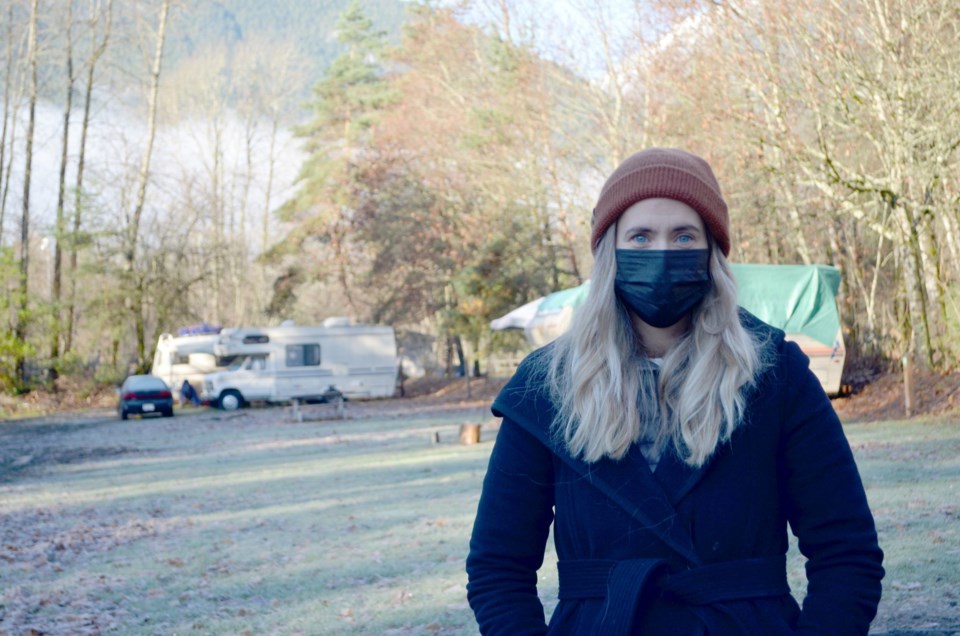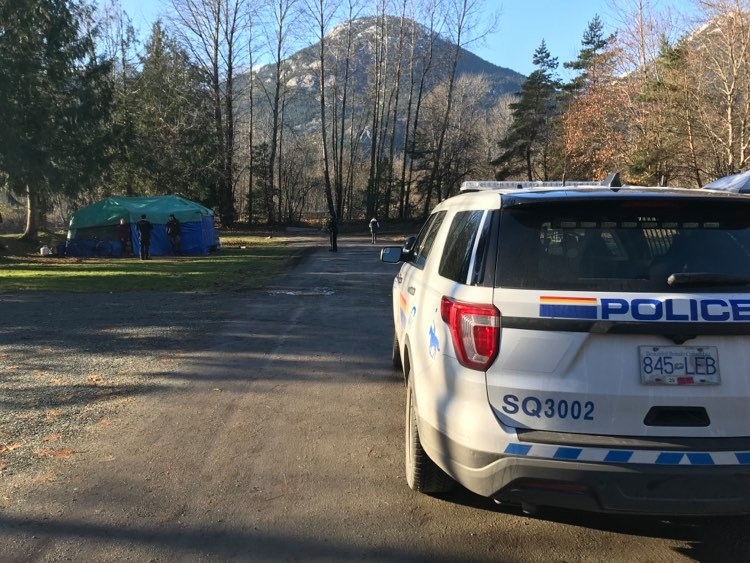With temperatures dipping down to single digits, remaining vulnerable residents in the municipality’s discount campground are wondering where they will go next.
On Nov.30, Vehicle Residents of Squamish Advocacy Group, or VRSAG, said that residents at the Squamish Municipal Campground next to Brennan Park had been notified of a possible eviction slated for Dec. 1.
While there were no officials on hand to escort people out of the camp the first day of December, activists said there were some signs residents were perhaps overstaying their welcome.
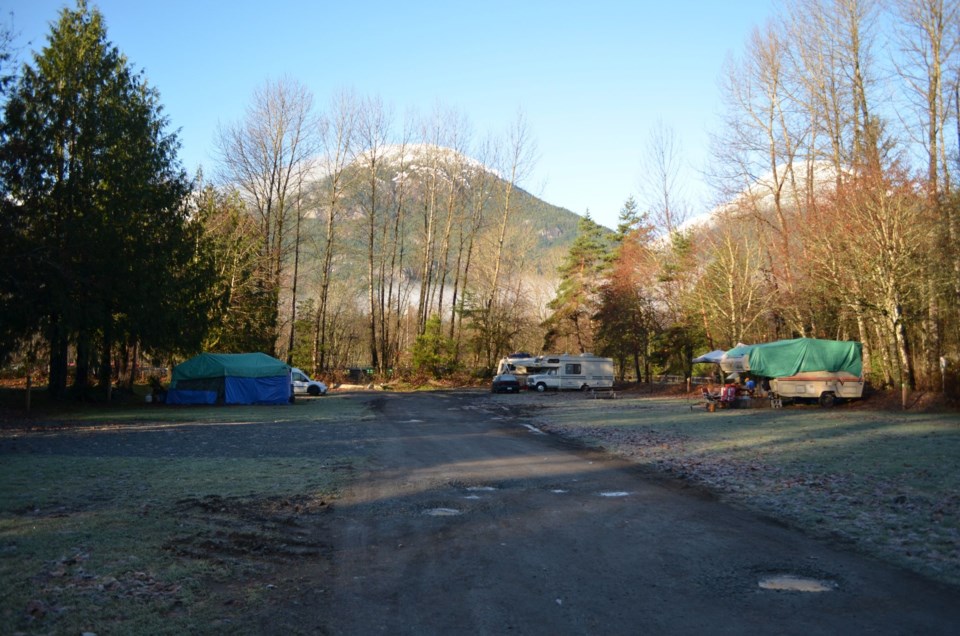
The advocacy group said that public garbage bins were removed on Nov. 30, and, as of the late afternoon of Dec. 1, those basic amenities were still absent.
On the morning of Dec. 2, the toilets were removed as well, though the District told The Chief that anything that was removed would be replaced that day.
In the afternoon Dec. 2, RCMP were sighted speaking to residents. VRSAG said that officers were issuing trespassing notices.
“The campground will need to close shortly though due to its unsuitability as a winter site. Trespass notices will be provided to ensure that the campers understand they need to move from the site,” District spokesperson Christina Moore told The Chief.
Moore added that the District is still trying to advocate on behalf of those who may require assistance, with the hopes of securing support for them through BC Housing.
Activists say the last time campground residents were given verbal notice to leave was in mid-November. They did not receive written notice, they said.
VRSAG also provided an email from the Residential Tenancy Branch saying that in this case, landlords may evict tenants after providing one month’s written notice in an official RTB form.
The Chief obtained a copy of the agreement that campers signed with the District and submitted it to the province, asking for comment on whether the standard notice periods and rights enshrined in the Residential Tenancy Act or the Manufactured Home Park Tenancy Act would apply to the case of the campers.
The file was directed to the Ministry of the Attorney General.
“The question of whether a tenancy exists in the case of RV parks and campgrounds can be complex and needs to be reviewed on an individual basis, where an arbitrator reviews evidence from both parties to determine whether the Manufactured Home Park Tenancy Act applies,” reads a statement from the ministry.
“While we cannot comment on specific cases, we would encourage any residents of an RV park or campground who receives an eviction notice to contact the Residential Tenancy Branch.”
The statement added that BC Housing is working with Squamish Helping Hands and Sea to Sky Community Services to connect people in the camp with assistance.
The District told The Chief that notice was given at the end of October that the municipal campground would need to close for the winter as the site is unsuitable for winter use.
Moore said campers were provided with a campground licence agreement for November indicating the expiry of the agreement was Nov. 15 and day-to-day after that pending weather, to the end of the month.
“Outreach workers from Squamish Helping Hands and Sea to Sky Community Services have been engaged since the winter closure was announced at the end of October, providing information, service connections and necessities for those willing to accept it,” Moore said in the email.
“The District of Squamish is continuing its advocacy with BC Housing to try to secure support for the eligible occupants of the eight remaining campsites that have not yet vacated the campground.”
Mayor Karen Elliot told The Chief that the municipality needs the province’s assistance in this matter.
“A lot of work has been done to ensure people have a place to go, and that they’re connected to supports they need,” said Elliott. “We’ll continue to work with BC Housing on options for remaining campers, and of course we will continue our necessary work on creating more affordable permanent housing.”
Earlier this year, the campground was offered up at a bargain rate of $200 a month to help residents navigate the financial hardships COVID-19 has caused on the local economy.
However, in late October, in a 4-3 vote, council voted in favour of shutting the campground for the winter, as usual.
Councillors Jenna Stoner, Armand Hurford and Chris Pettingill were against the closure.
However, Elliott, and councillors John French, Doug Race and Eric Andersen supported the closure, reasoning it was not worth spending the $34,000 needed to winterize the site, given the circumstances. The area is prone to flooding, and this has been problematic in the past, they reasoned.
They said the site is intended to be a temporary solution, and the municipality is playing with the idea of relocating the actual campground itself to another area.
At least some campers say they feel like they may be left out in the cold.
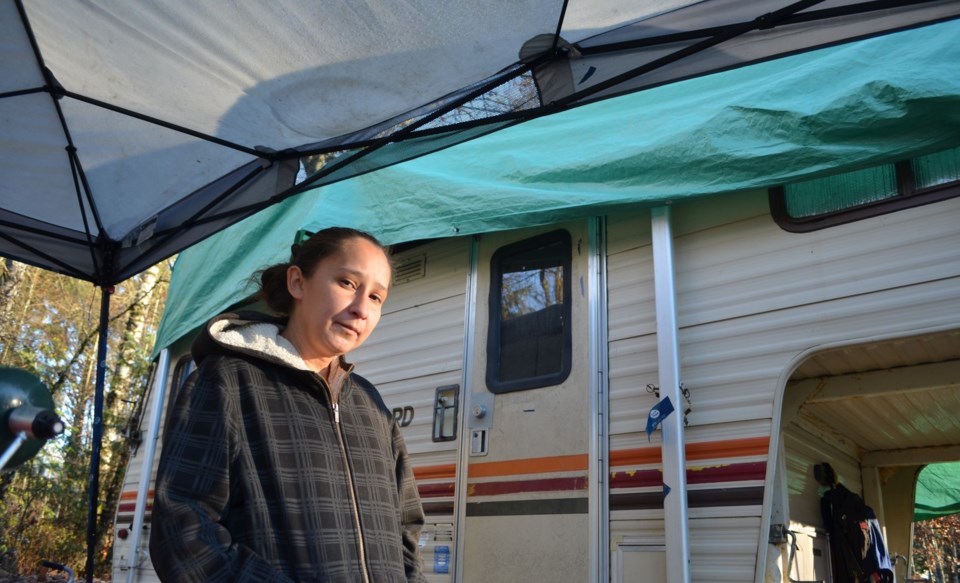
Jennifer Jameson has been in Squamish since January and has spent three to four months living in the Squamish Municipal Campground. She was drawn to town because of work and since she has family here.
After turning off the humming generator outside her trailer home, she said that there was no other place in town she could afford.
“There’s nowhere else to move to,” said Jameson on Dec. 1. “I have nowhere to tow it to, I have no truck, and this is my home.”
She said she couldn’t find a spot at the local social housing site or anywhere else.
Without a truck, it’s unclear if she will have the means to even move if she wishes to.
“I become homeless and I live on the street,” she said, musing about the consequences of a closure. “There’s nowhere else to go, and I don’t even know what to do with my trailer then.”
Facing that prospect, she had one message for the municipality.
“Please let us stay at our risk,” said Jameson. “If it floods here, let us deal with it.”
Not more than stone’s throw away from Jameson is the residence of Neil Sherwood, who’s been in town for four months. He’s been in the campground for a month and a half, but prior to that he was playing cat-and-mouse with bylaw officers, trying to sleep in his vehicle and relocating whenever officers forced him to move.
In the cold morning air, he donned a jacket and took long drags from his cigarette. The ground upon which he was standing would normally be filled with muddy puddles, but on the morning of Dec. 1, the water had turned to ice.
Judging by the way things are going, he’s accepted that he may not have a place in Squamish anymore.
The previous day, he had to give his two weeks’ notice at his job in construction. His attempts to find a new home in town have all run into dead ends.
“Poverty can happen quickly with life circumstances, and there’s a lot of walking wounded out there,” Sherwood said.
He’ll put his things into storage, and live out of his vehicle as he finishes off the remainder of his two weeks. Then he’ll consider heading out to Abbotsford, a place that he hopes will be more affordable where he can make himself a new life.
“I’ve been trying to get out of the RV for a couple of years, but due to COVID and some other very challenging things that happened in life, I got struck by poverty, and once unemployment and poverty gets to a certain point, it’s not as easy as walking out of a hole. You crawl,” said Sherwood.
“So I hold on to my shelter, because it’s all I have.”
He said he’s lucky to no longer have addictions, but still faces mental health challenges.
Sherwood did have positive words for the municipality’s choice to institute the bargain camping rates earlier this year.
“Thank you for letting me stay here for as long as you did,” he said. “I thought it was a great idea. If I had the opportunity or chance, I would work volunteer hours as a way to pay my municipal taxes.”
He said he really wanted Squamish to work for the long term, but the situation has become untenable.
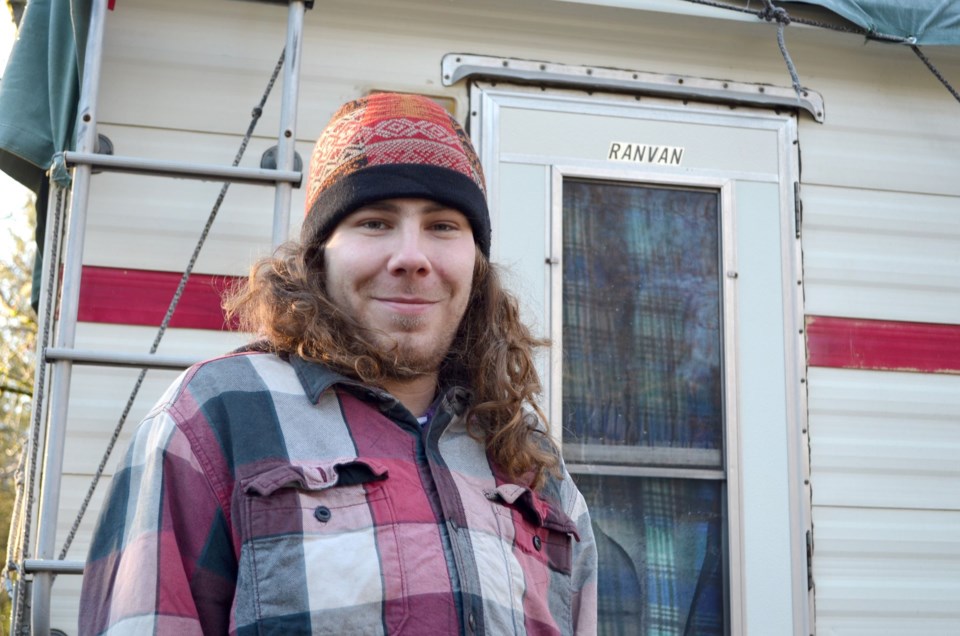
Andrew Thompson’s story is a little different. Unlike a number of the campground residents, he is choosing to live in his vehicle.
Thompson said he liked the challenge, the lifestyle, and it allows him to save some money.
He said he’ll try moving to another campground, but is still uncertain as to what his next steps will be.
“I feel like they’re just kind of stepping on the van community, which they don’t mind doing anyways, which they’ve proved before,” Thompson said.
As a bike shop manager for a startup business, the pay is not high — it’s a passion industry, he said.
“When you do a passion industry and you get pushed out by overpriced rent in an area where everyone wants to utilize your services, that’s like salt in the wound,” he said.
Leanne Roderick of VRSAG urged the municipality to use its powers to make a safe legal space for people to stay in their vehicles.
Roderick said the campground residents were happy to continue paying to be tenants on the land.
“A lot of people are using the excuse that these people are freeloaders,” she said.
“And I think it’s important to understand people want a way to stay here safely, and they’re happy to contribute to that.”
Many people in the campground don’t have the ability to move at this point, she said.
“Their vehicles may be locked in, winterized, and they have nowhere to go,” Roderick said.
“I think the best solutions are going to come from the people who are staying here, so my hope, really, is that more close consultation happens and the District listens and collects more information about what these people need, which, honestly, is very little. They’re not asking for very much. They’re also happy to contribute to paying for whatever that is.”
However, at least for the immediate future, residents will have to look elsewhere.
The process of closing the campground has begun and will continue over the coming days, with support from the Squamish RCMP working with campers and staff.
